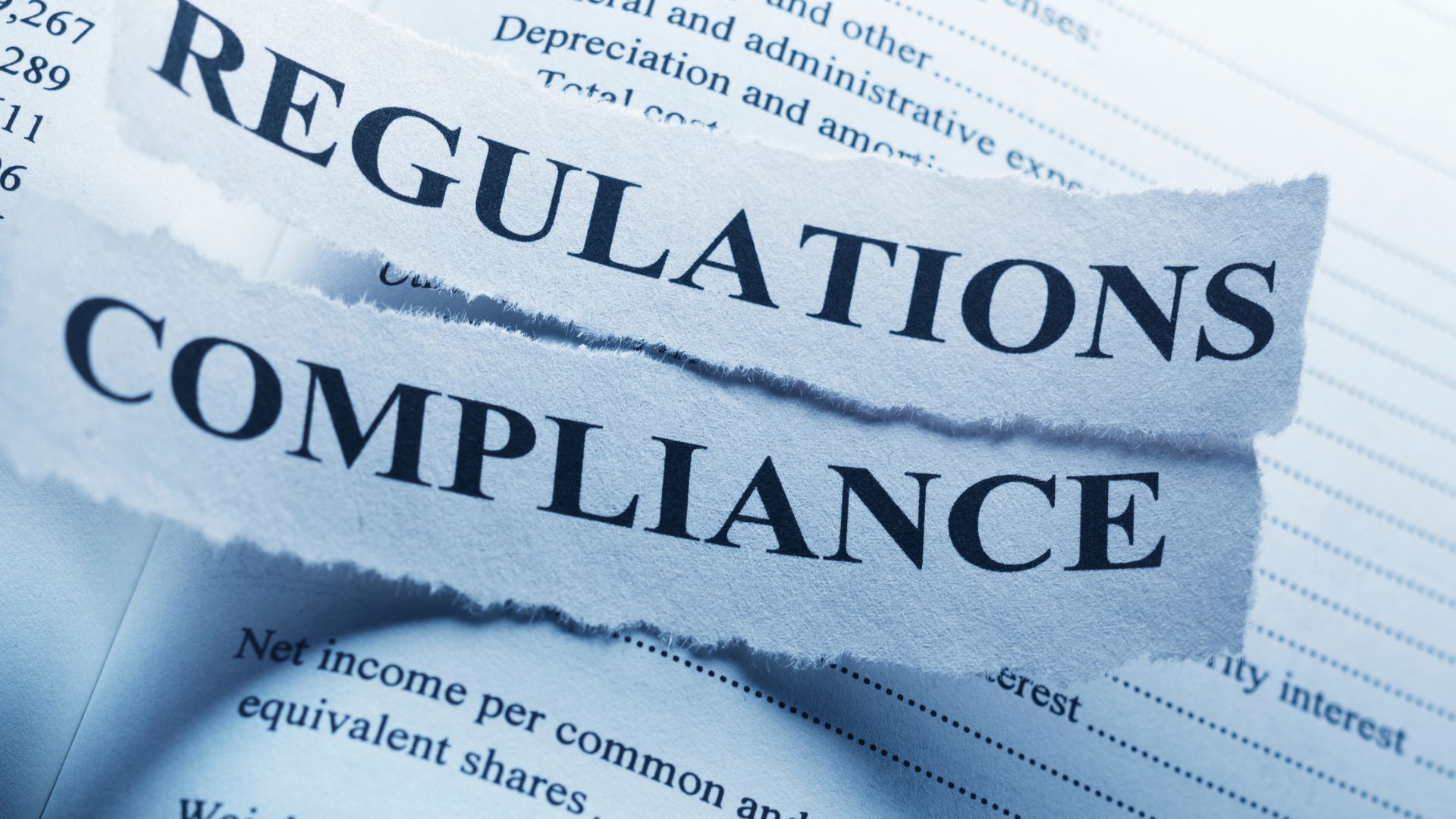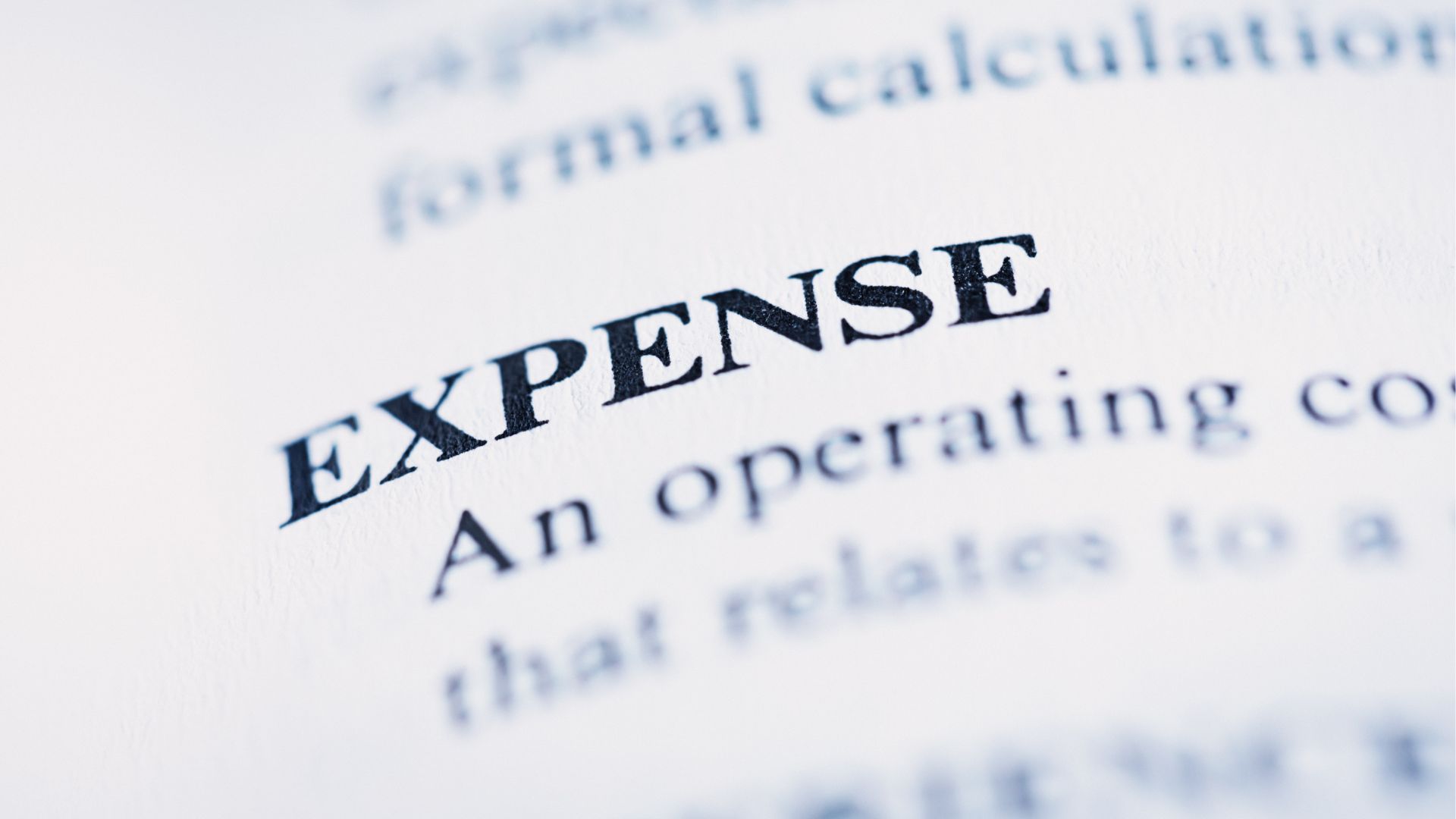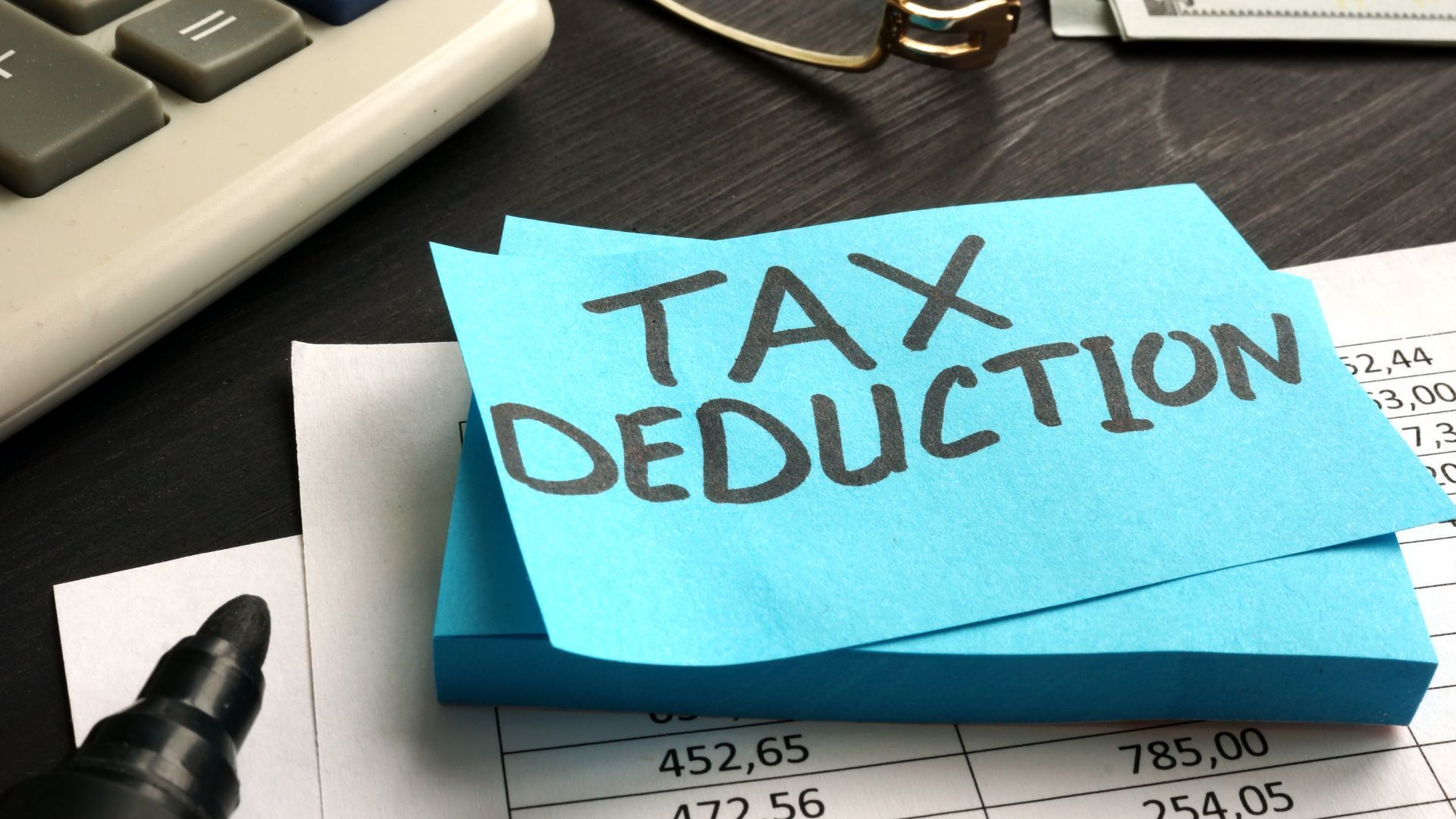Avoid Expense Management Mistakes
Common Expense Management Mistakes and How to Avoid Them
With money flowing in and out of your business, it’s hard to keep track of your expenses. As a limited company contractor, there are a lot of expenses that you can claim as tax-deductible, allowable costs. But, managing these is another story. Unless you’re organised and methodical in your approach to expense management, you could find yourself making some of the most common mistakes.
At Go Limited, we’re here to help contractors - both sole trader and limited company contractors - to navigate the complex world of being a self-employed worker. This includes helping you to keep on top of your expenses, ensuring that you’re claiming for the right costs and not making any mistakes.
You have 45 days to return items for a full refund, with or without a receipt. Items must still have their original tags.
You have 45 days to return items for a full refund, with or without a receipt. Items must still have their original tags.
You have 45 days to return items for a full refund, with or without a receipt. Items must still have their original tags.
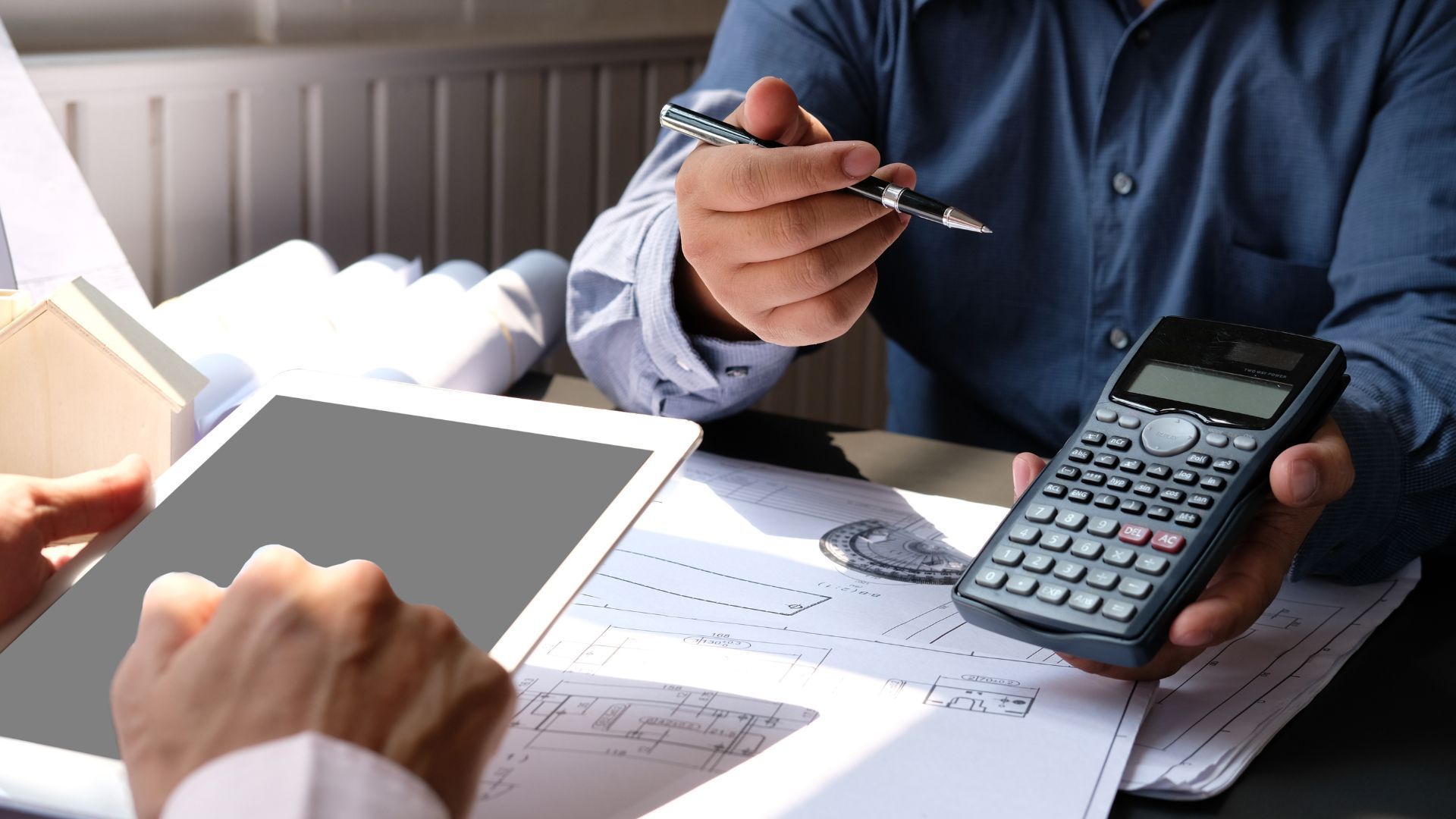
Understanding Allowable Expenses for a Limited Company
As a contractor with a limited company, you have the benefit of being able to claim some of your costs as tax-deductible expenses. These allowable expenses are costs that your business incurs that are essential for its operation. When claimed correctly, these expenses reduce your business’ taxable profits, helping you to lower your overall tax bill and maximise your income.
Rent, office bills, stationery, equipment needed for running your office, travel costs, professional fees, staff costs and marketing are all allowable expenses, and this is by no means and extensive list, there are many more. Understanding what counts as an allowable expense is key if you want to perfect expense management and compliance. If you’re unsure about what expenses are tax-deductible, it can make it a lot more difficult to manage things.
What Makes an Expense for a Limited Company Tax-Deductible?
When it comes to tax-deductible expenses, it’s important to make sure that the costs are wholly, exclusively and necessarily for your business. This means the expense must be for something that the business needs, such as equipment or raw materials, and isn’t for personal use or benefit. You can’t simply buy something for your home, claiming that it’s for your business if that’s not the case. You also need to make sure that expenses are backed up by proper ‘proof’ such as receipts and invoices, otherwise they might not be allowed by HMRC. After all, HMRC wants to make sure that businesses are only claiming for the expenses that they actually need, and not every purchase directors make throughout the year. Without proof, it’s hard to claim any expense as allowable.
Business insurance, software subscriptions used exclusively for work, training and development - as long as it’s related to your business activities - and employee expenses are allowed. However, taking clients out for lunch or treating yourself to a new business suit isn’t. The more you know about tax-deductible business expenses, the easier you’ll find expense management.

Allowable Expenses: Limited Company Management Mistakes
It doesn’t matter what industry you’re in or the service that you provide as a contractor, it’s important to keep on top of everything. If you don’t, you run the risk of making a mistake. For a lot of limited company contractors, these mistakes turn up in the way expenses are managed. Luckily, there are things that you can do to avoid making these expense mistakes, giving yourself the best chance of expense management success.
- Not Keeping Proof of Every Expense - You need to ‘prove’ the expenses that you’re wanting to claim as a limited company. Without receipts or invoices, HMRC could disallow your expense claims during an audit. It’s important to always save physical or digital copies of receipts, and consider using expense management software to organise them effectively.
- Not Understanding Limited Company Trivial Benefits - There are a lot of expenses that can be claimed as a business, but many limited company owners miss out on claiming a big one - limited company trivial benefits. Trivial benefits are small perks you can provide to employees without them being taxed. This includes giving employees gift cards, birthday presents or small gifts.
- Getting Limited Company Entertainment Expenses Wrong - While business entertainment expenses - such as client lunches and dinners - may seem like legitimate costs for a business, they are usually not tax-deductible. Getting this wrong and claiming them as tax-deductible limited company expenses could lead to errors in your accounts and potential penalties from HMRC.
- Trying to Claim for Personal Expenses - A common mistake is attempting to claim personal costs as business expenses. For example, claiming a family holiday or personal bills as a business expense, which could attract scrutiny from HMRC. Always keep personal and business expenses separate, as only expenses that are wholly related to your business can be claimed.
- Forgetting to Keep Mileage Records - If you use your personal vehicle for business purposes, you can claim mileage expenses. However, failing to log your journeys accurately may result in reduced claims or compliance issues. Even if you only make a few short journeys, always keep records to show what you have spent and when.
- Unnecessarily Delaying Expense Claims - There’s a lot to think about when you’re contracting through a limited company, and waiting too long to log or claim expenses can lead to errors and forgotten costs. You don’t want to forget an allowable expense, as you’re entitled to claim it. This not only impacts your financial records but also limits the tax relief you can claim.
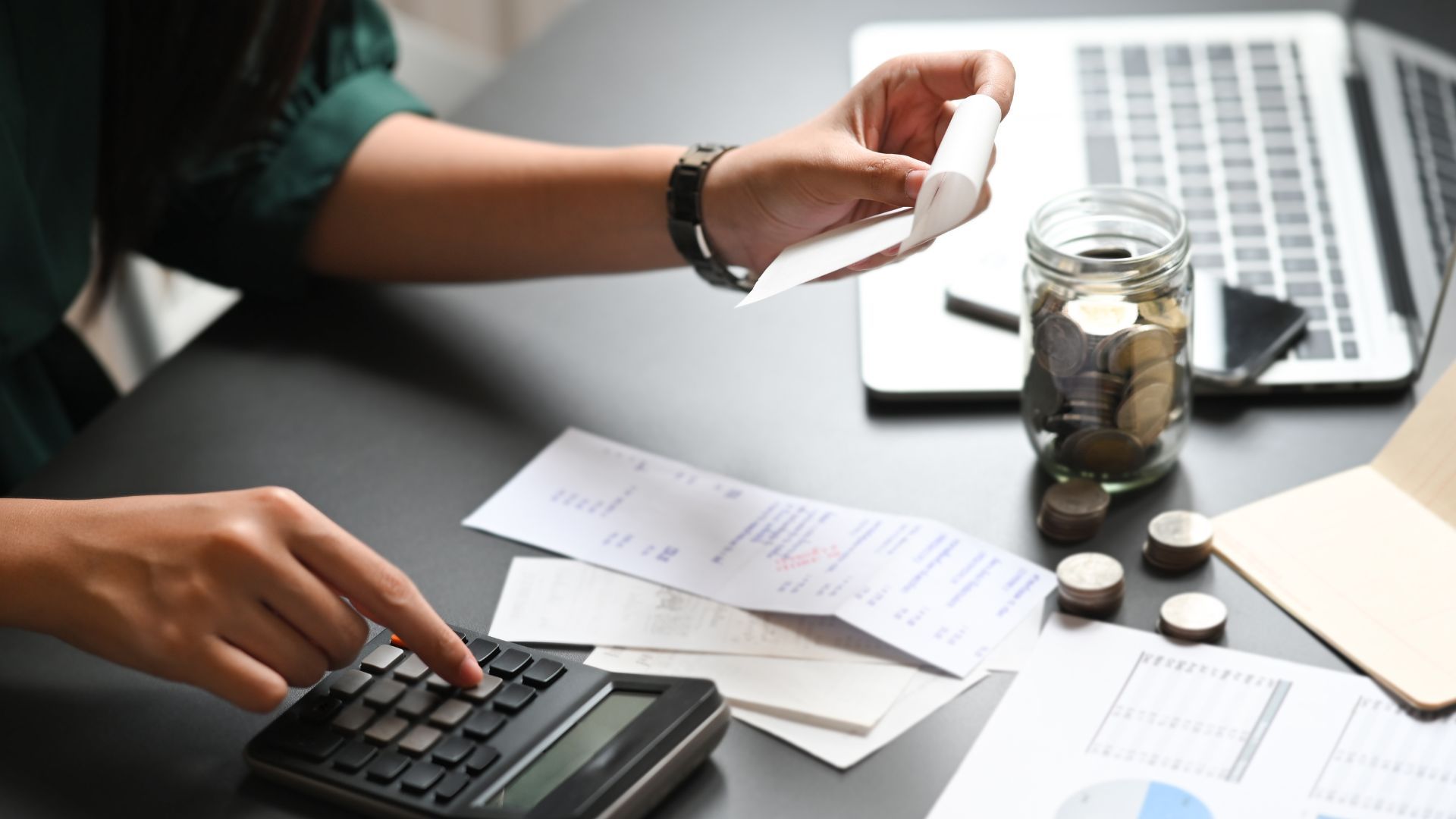
How to Make Managing Your Limited Company Expenses Easier
With so much to keep on top of as a limited company contractor - liaising with clients, completing projects, sending and chasing invoices and so on - you’ll want to make things easier wherever you can. Though there are a handful of mistakes to watch out for when it comes to expense management, there are also a lot of ways you can streamline the process. Keeping on top of your business’ expenses doesn’t have to be overwhelming, nor does it have to be stressful.
- Use Expense Management Software - If you have a lot of expenses to manage, you might benefit from using expense management software. Platforms such as Xero and QuickBooks can automate expense tracking, categorise costs, and they can even integrate with your accounting software to simplify reporting. This might not be cost-effective if you only have an expense or two to claim at the end of the year, but it can really simplify things for limited companies with a lot of outgoings.
- Have Clear Expense Policies in Place - Despite HMRC’s expense guidelines, it’s easy to get carried away. To avoid trying to claim for things you’re not able to, or to stop you buying something assuming it’s tax-deductible when it’s not, have clear expense policies in place. Determine what allowable expenses you’re likely to have and the documentation you need to ‘prove’ that. If you have employees, ensure they’re aware too.
- Have Separate Business and Personal Accounts - It’s tempting to keep your finances together but, as a limited company contractor, you need to have a separate business account. This makes it a lot easier to keep records of the payments flowing in and out of the business, and it stops your personal and business expenses from getting mixed up. This makes tracking your expenses a lot easier, reducing the chances of a cost being missed.
- Review Your Expenses Regularly - With so much to do as a limited company contractor, it’s understandable that expenses often fall to the bottom of the ‘to do’ pile. But, this can actually make expense management a lot more complicated. Instead of looking at your expenses sporadically - or even worse, once a year when your tax return is due - schedule monthly or quarterly reviews to ensure that everything is logged correctly and that you’re not missing out on claims.
- Hire an Accountant - Of course, working with a limited company accountant isn’t for everyone, but it can help you to manage your limited company expenses. An experienced accountant can help you to understand allowable expenses, ensure you’re being compliant and even identify additional savings opportunities. It’s something that you’ll need to factor into your budget, but the cost is often worth it, especially if you’re likely to miss claiming some expenses for limited companies yourself.

FAQ
What expenses can a limited company claim?
A limited company can claim expenses that are wholly, exclusively, and necessarily for business purposes. These can include:
- Office costs (e.g., stationery, software, utilities)
- Staff salaries and National Insurance contributions
- Travel and accommodation for business purposes
- Professional fees (e.g., accountants, solicitors)
- Business insurance (e.g., public liability, professional indemnity)
- Marketing and advertising costs
- IT equipment and business-related software
- Training relevant to the business
What are tax-deductible expenses for a limited company?
Tax-deductible expenses reduce the company’s taxable profit, lowering the corporation tax liability. Some common HMRC allowable expenses include:
- Rent for business premises
- Equipment purchases (computers, furniture)
- Mobile phone and broadband (if used for business)
- Mileage and fuel costs for business-related travel
- Work uniforms and protective clothing
- Subscriptions to professional bodies (if related to work)
What expenses can I claim as a director of a limited company?
As a director, you can claim expenses that are strictly for business purposes, such as:
- Travel costs (train, flights, taxis, mileage)
- Meals and accommodation for business trips
- Home office expenses (if working from home)
- Professional development (if relevant to the business)
- Use of personal vehicle for business (approved mileage rates)
- Health and safety-related costs (if necessary for work)
What expenses can a limited company claim for working from home?
If you run your company from home, you can claim a proportion of household expenses:
- A flat rate of £6 per week (no receipts needed)
- A percentage of utility bills (electricity, heating, broadband) based on business use
- Office furniture and equipment (desk, chair, monitor)
- Business phone calls and broadband costs
What are some examples of allowable expenses for corporation tax?
Allowable expenses reduce your company’s taxable profit. Examples include:
- Employee salaries and pensions
- Rent, rates, and utilities
- Business-related travel and accommodation
- Software subscriptions and website hosting
- Business banking fees and interest
What are disallowable expenses for corporation tax?
Some expenses are not tax-deductible, including:
- Fines and penalties (e.g., parking tickets, HMRC fines)
- Entertaining clients and suppliers
- Personal expenses unrelated to business
- Charitable donations (unless through a recognised scheme)
- Asset depreciation (instead, you claim capital allowances)
Can I claim VAT on limited company expenses?
If your company is VAT-registered, you can reclaim VAT on business-related expenses, provided you have valid VAT invoices. However, VAT cannot be reclaimed on:
- Business entertainment costs
- Personal expenses
- Expenses not related to VAT-registered business activities
What records should I keep for business expenses?
HMRC requires limited companies to keep accurate records of business expenses, including:
- Receipts and invoices for each purchase
- Bank statements showing business transactions
- Travel logs for mileage claims
- Utility bills (for home office expenses)
How do I claim expenses as a limited company?
- Paid by the company: Record them as business expenses in your accounts
- Paid personally: Submit an expense claim and reimburse yourself from the company
- VAT-registered companies: Record VAT separately for reclaiming

At Go Limited, we’ve worked with a lot of contractors who have set up limited companies, and we know that expense management is one of the more complicated - and let’s be honest, time-consuming - aspects. It’s something that a lot of contractors forget about, and then make mistakes when the time comes to organise everything. But, with our experts on hand to help and knowledge of how to avoid common expense management mistakes, there’s no reason as to why your limited company expenses have to be daunting.


